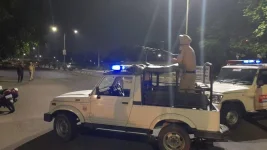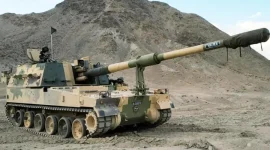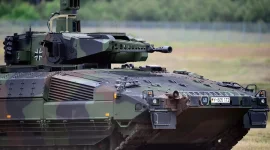The Delhi high court has upheld the termination of services of a Christian army officer over his consistent refusal to fully participate in the weekly regimental religious parades and said the armed forces were united by their uniform rather than being divided by their religion.
A bench of Justices Navin Chawla and Shalinder Kaur rejected the petition by the Indian Army Lieutenant, who served as a ‘Troop Leader’ of a squadron, against the termination order passed on March 3, 2021, that dismissed him from the Indian Army without pension and gratuity.
The court opined that the petitioner kept his religion above the lawful command from his superior, and disobedience was an offence under the Army Act.
“In the present case, the question is not of religious freedom at all; it is a question of following a lawful command of a superior. It is not disputed by the petitioner that his superiors have been calling upon him to attend the religious parades by even entering the sanctum sanctorum and perform the rituals if this would help in boosting the morale of the troops. In the present case, the petitioner has kept his religion above a lawful command from his superior. This clearly is an act of indiscipline,” said the bench.
“Our Armed Forces comprise personnel of all religions, castes, creeds, regions, and faiths, whose sole motto is to safeguard the country from external aggressions, and, therefore, they are united by their uniform rather than divided by their religion, caste, or region,” it stated.
The petitioner submitted that his regiment maintained only a temple and a gurudwara for its religious needs and parades, and being of monotheistic Christian faith, he sought exemption from entering the innermost part of the temple while accompanying his troops for the weekly religious parades and other events.
The authorities defended the termination, saying efforts were made through other Christian officers in the army, and he was also taken to the pastor of a local church, who told the petitioner that entering the sarv dharm sthal as part of his duties would not impinge on his Christian faith. However, he remained undeterred.
In its judgement passed on May 30, the court “saluted” the dedication of “those who guard our borders day and night in adverse conditions” and said uniformity in appearance as well as respect for all the religions was quintessential to a cohesive, disciplined, and coordinated functioning of an armed force and the ethos of the armed forces placed nation before religion.
It further said that although regiments might historically bear names associated with religion or region, it did not undermine the secular ethos of the institution, and religious war cries only serve a purely motivational function, intended to foster solidarity and unity amongst the troops.
The court observed that in the present case, the Chief of Army Staff concluded that the conduct of the petitioner was in violation of the essential military ethos, and it could not “second-guess” the decision unless it was manifestly arbitrary.
“While there can be no denial of the fact that the petitioner has the right to practice his religious beliefs, however, at the same time, being the Commanding Officer of his troops, he carries additional responsibilities as he has to not only lead them in war but also has to foster bonds, motivate personnel, and cultivate a sense of belonging in the troops,” the court observed.
It therefore held that the petitioner’s refusal to fully participate in the weekly regimental religious parades, despite counselling at multiple levels of command and multiple opportunities being given to him for compliance, demonstrated an unwillingness to adapt to the requirements of military service and the armed forces.
It said the termination of the petitioner was justified, and since the religious sentiments and the morale of the troops were in question, a formal court martial was “unsuitable for resolution” as it could be detrimental to the secular fabric of the armed forces.
“While to a civilian, this may appear a bit harsh and may even sound far-fetched, however, the standard of discipline required for the Armed Forces is different. The motivation that is to be instilled in the troops may necessitate actions beyond ordinary civilian standards,” the court observed.
“We find no grounds to interfere with the Impugned Order dated 03.03.2021. The petition is, accordingly, dismissed,” it held.








